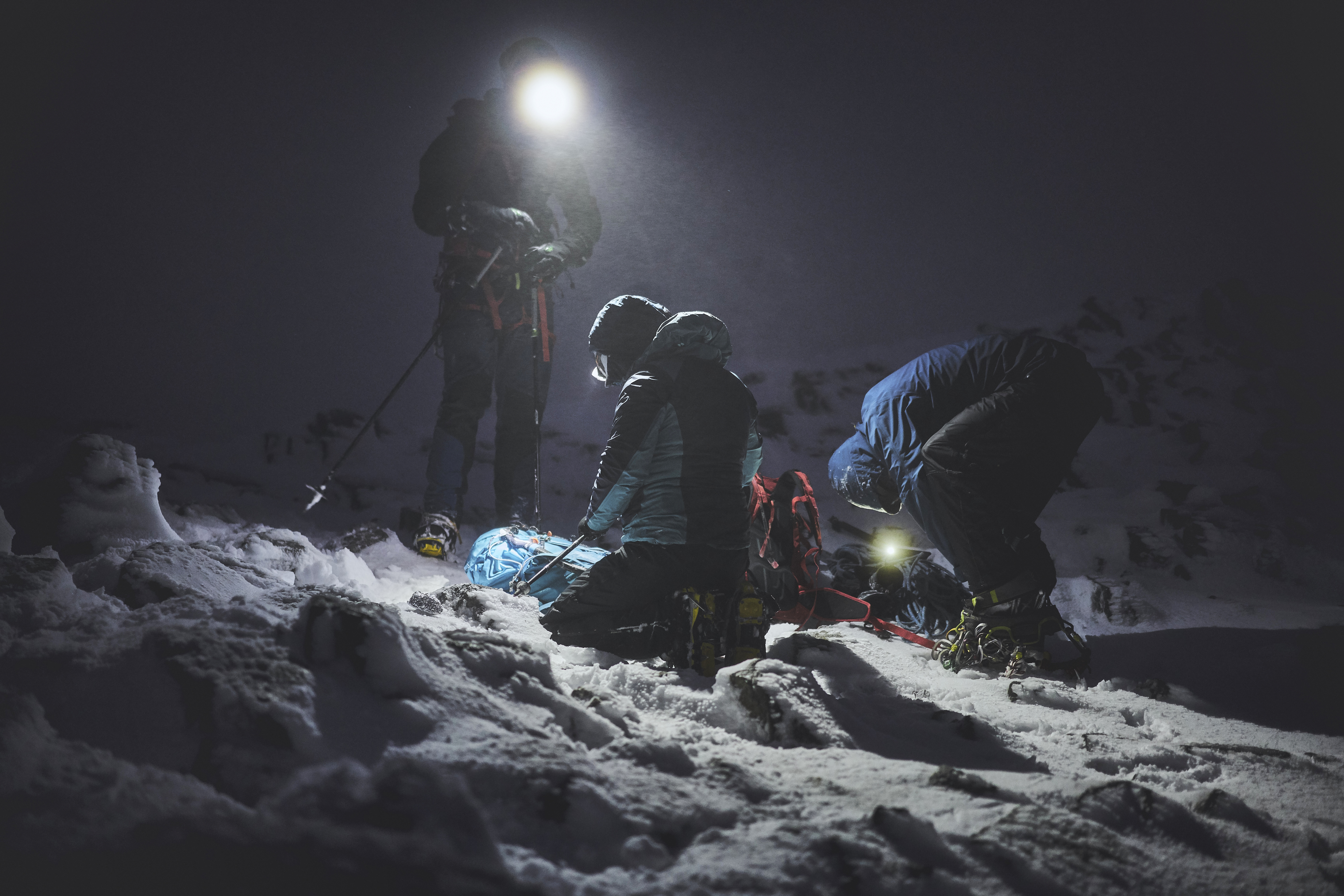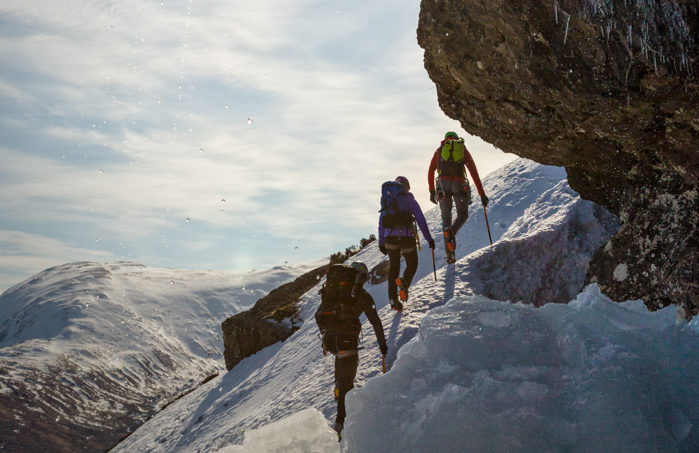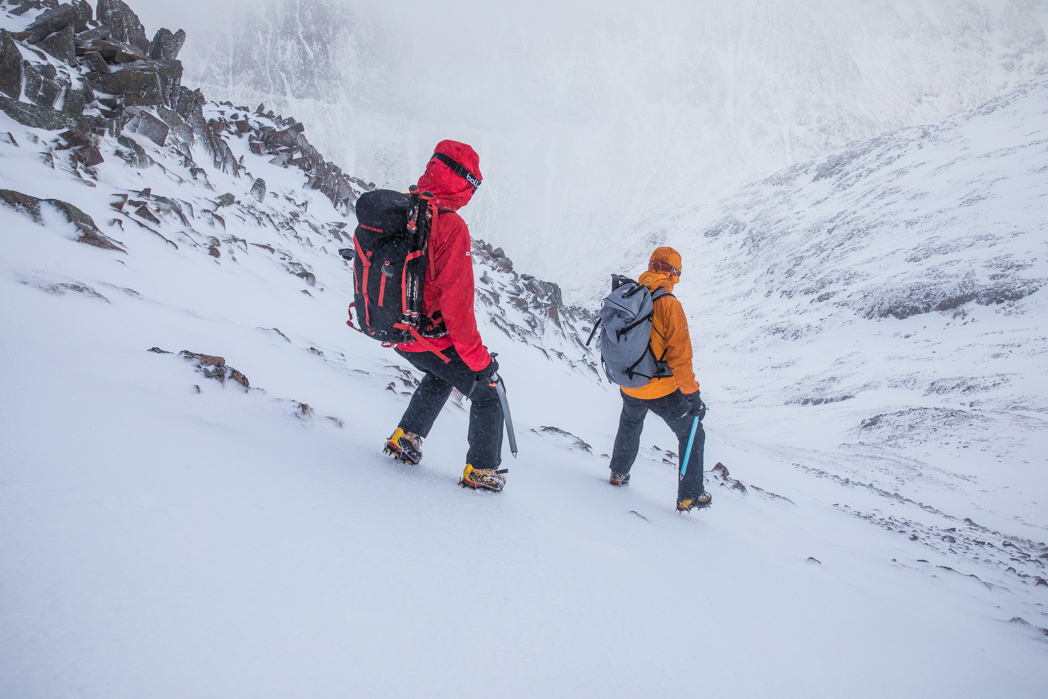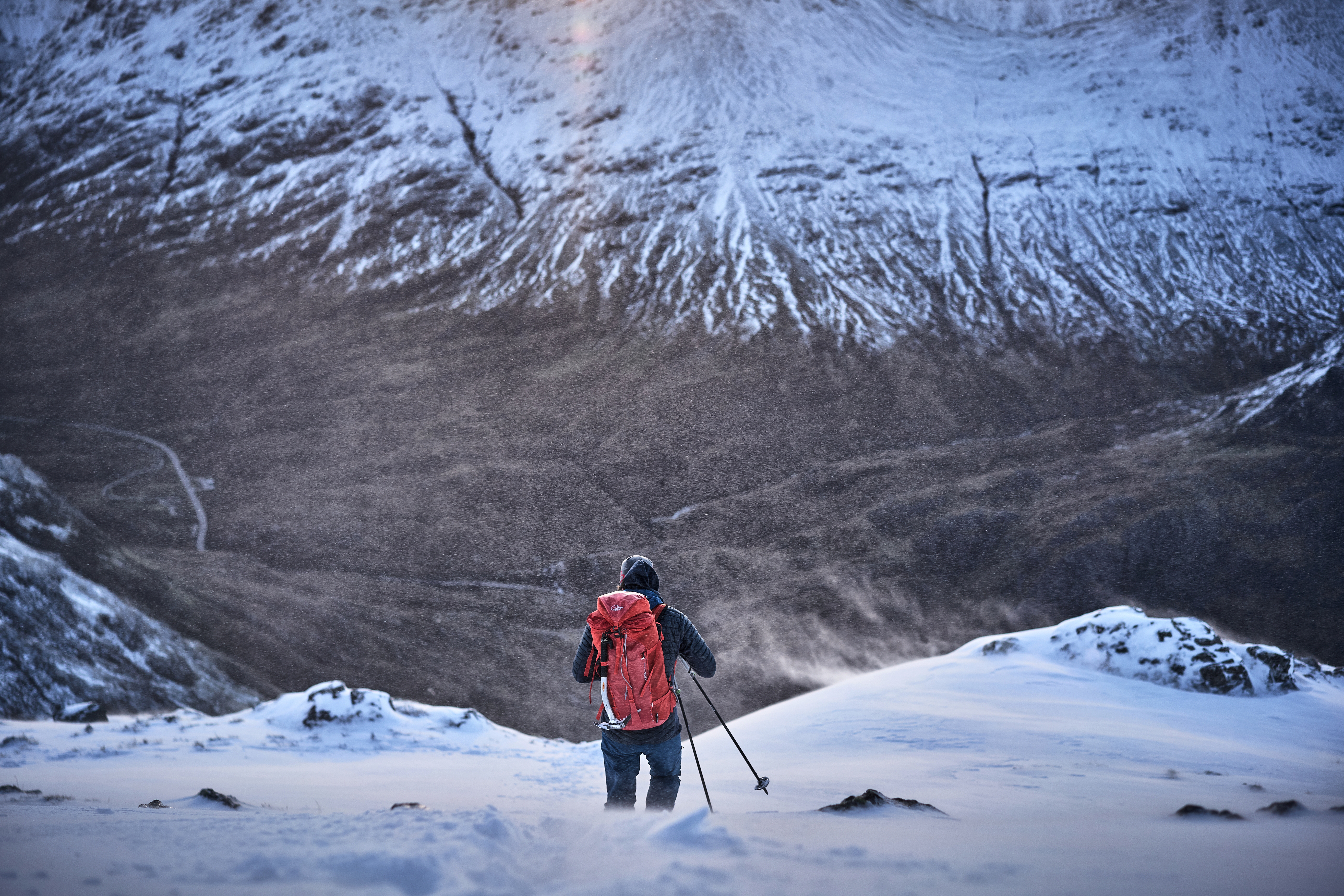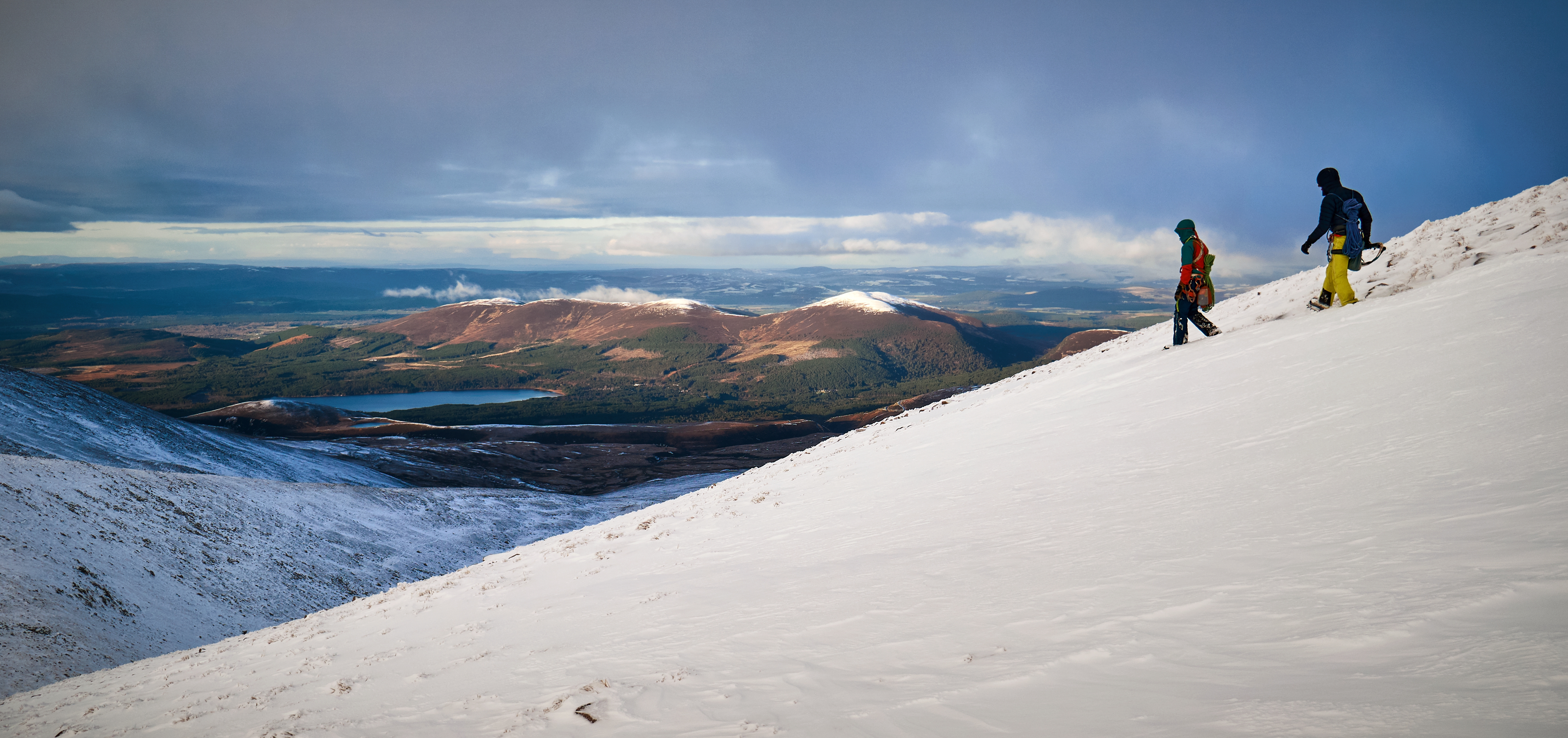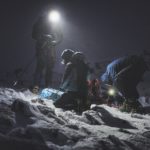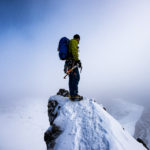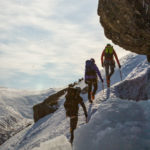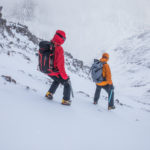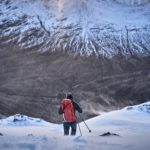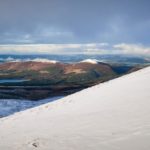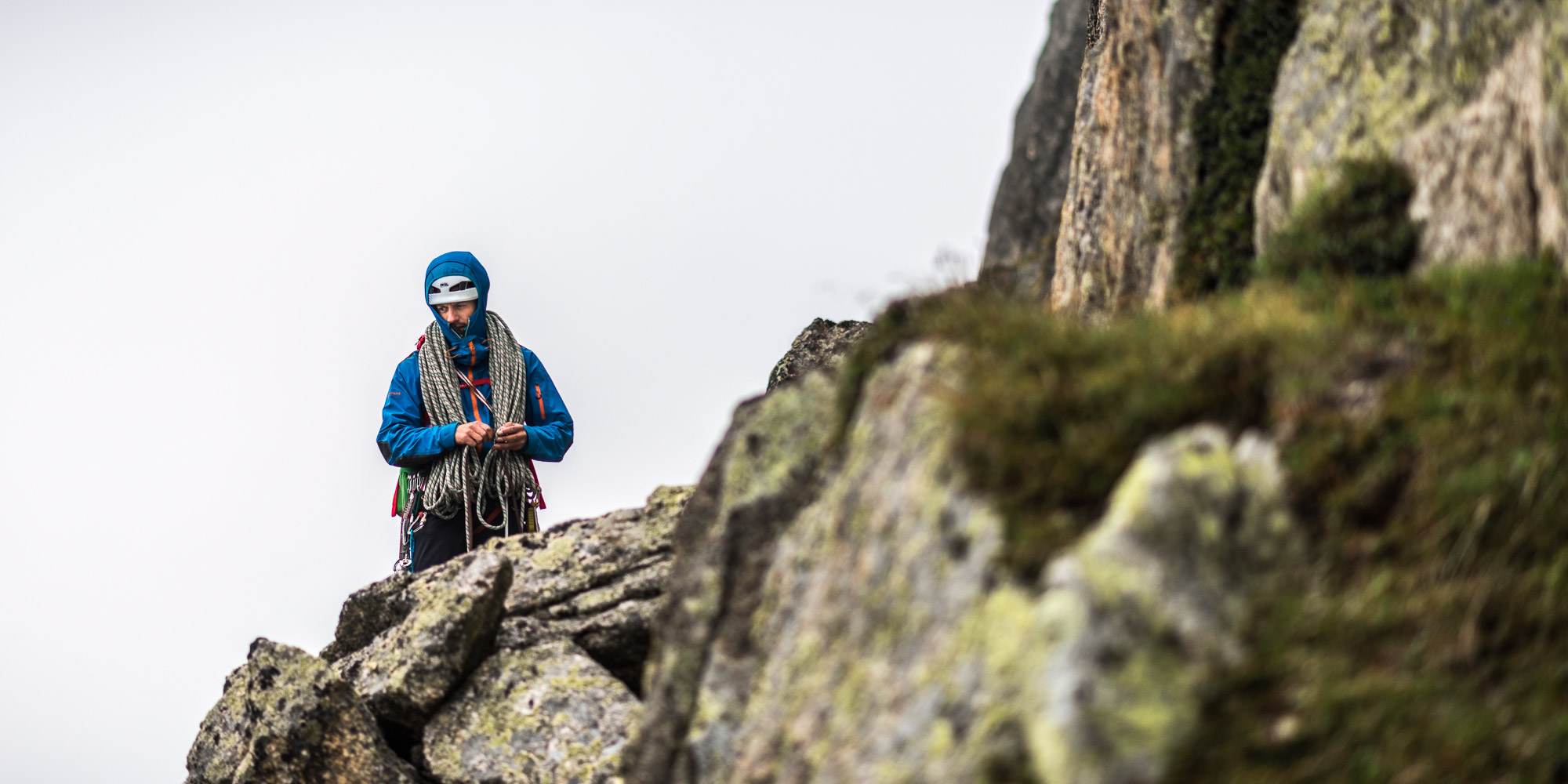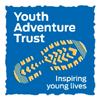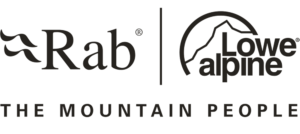Overview
During a winter expedition training course we will cover the gateway skills you need to looking after yourself and journey about in the mountains in winter. These include:
- Equipment selection and packing
- Weather and avalanche conditions; interpretation and planning together with venue choice
- Fitness; health and hygiene
- Acclimatisation and altitude
- Staying warm
- Movement skills including use of ice axe and crampons
- Movement over steep terrain
- Fixed lines/ropework
- Camping on snow
- Emergency procedures
These courses typically run at 1:6 ratio
Trip Suitability
Our Expedition training courses are suitable for everyone.
We have a broad variety of friendly, top level Expedition Leaders who can deliver all aspects of your training. We’ll always aim to use a leader who has personal experience of the peak you aim to climb however this may not always be possible on open courses with multiple destinations. Your leader will always still be a highly experienced expedition leader with masses of skill.
If you are new to mountaineering having a good level of fitness will benefit your overall enjoyment of the day.
Itinerary
Our expedition training itineraries will vary with each course (this is often determined by where in the world you are going on expedition). The locations that you visit will be determined by your aims and the weather & conditions. On the west coast of Scotland we have a huge variety of options to choose from including a variety of heights of mountain and approach directions. A flexible approach is essential as this will give us the best chance of finding suitable conditions to train in.
This is an example of a 2 day expedition training itinerary for Mera Peak:
Day 1
- Meet your instructor at 8.30am either at pre allocated café or your accommodation
- Discuss the aims and objectives of your days together
- Check your personal kit
- *Go out into the mountains, have an amazing day and learn lots
- Camp out on an a snowy mountain, **sleep under the stars, **watch the northern lights
*We may decide to do some theory over coffee at the start or end of the day. Typical topics include acclimatisation/altitude, health and hygiene and mental preparation
**Neither stars nor the northern lights are guaranteed…
Day 2
- Eat breakfast
- Continue practicing your skills in the mountains
- Return to a café for 4:30pm/5pm for tea, cake and to re-live your two days
- Depart and head home
Venues that we often use in Scotland include the ski areas at Aonach Mor and Glencoe, Buachaille Etive Beag, Bidean Nam Bian, Ben Nevis and the Mamores.
Map
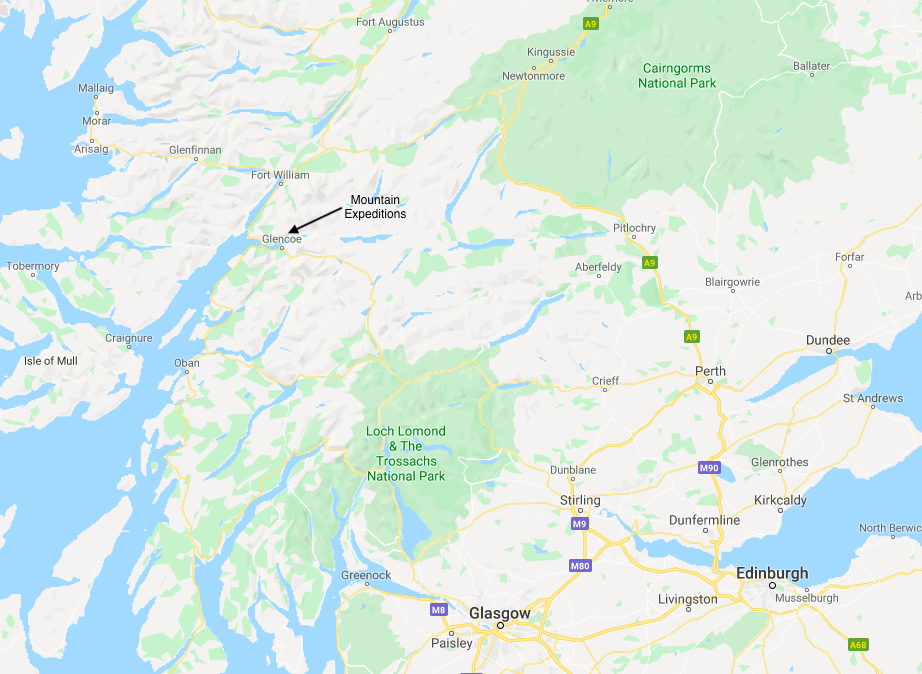
Included
When you book with Mountain Expeditions, we want you to know exactly how much the course is going to cost you, with absolutely no hidden extras or last-minute costs.
The following are included in our price:
- UK Winter Mountain Leader or Winter Mountaineering and Climbing Instructor (WML or WMCI) – highly qualified & very experienced
- All technical group equipment required – ropes & rack
- All mountain safety & emergency equipment
- Transfers to and from the training venue
You should also refer to the Not Included section
Not Included
The following are NOT included in our price:
- Transport to and from Scotland
- Accommodation*
- Personal climbing equipment: helmet, harness, shoes, belay plate, ice axes, crampons etc. These are available for hire from us if you don’t already have them, or we can help you choose the right ones at the local climbing shops.
- All meals including packed lunches
- Trip insurance
* We recommend basing yourself in or close to Glencoe. There are plenty of B&Bs to choose from and the village has a small supermarket, pubs and restaurants nearby. We recommend checking out the legendary Clachaig Inn.
If you require any advice or help with any of the above, simply Contact Us.
Difficulty Level
All of our UK Courses & Worldwide Expeditions come with a suggested difficulty level to help you choose the correct one. For a full explanation of the Scottish Winter, Alpine and UK Rock Climbing grading systems, this blog explains them all – Grades Explained
Grading for UK Courses
With all our UK courses please refer to the Trip Suitability section for more specific details on course expectation and technical and physical levels required.
C1 – Intro Course: open to any level and ability
C2 – Intermediate Courses: previous experience of scrambling/rock climbing or winter mountaineering
C3 – Advanced Courses: previous technical summer or winter climbing experience
Grading for Worldwide Expeditions
With all our Worldwide Expeditions you should refer to the Trip Suitability section for more specific details on the expedition expectation and technical and physical levels required. If in any doubt please don’t hesitate to contact us.
Physical
A. Good basic fitness, as for UK hill walking and mountaineering. Average rucksack weight: 6-8 kg
B. Good cardio-vascular fitness which for most people requires some training, by running, hiking and perhaps some gym work. Average rucksack weight: 8-12 kg.
C. High level of fitness coupled with physical toughness and the ability to carry a heavy rucksack for long periods. Average rucksack weight: 12-18 kg.
D. As for C, but tougher. Climbs of this grade are exceptionally strenuous and some weight loss is inevitable. Train hard and arrive fit. Welcome to ask for advice if training specifically.
E. Hard physical effort at extreme altitude which requires thorough preparation based on your experience of previous trips. Comments for ‘D’ also apply. May cause long-term fatigue after the trip.
Technical
1. Low angle snow or straightforward scrambling on rocks. Ropes are not usually required. Previous climbing experience is not essential.
2. Ropes are used principally for glacier travel and low angle snow or ice slopes. Ice axe and crampon experience necessary.
3. Short, steep sections of snow or ice up to about 50 degrees. Previous snow and ice climbing experience of Scottish III/Alpine PD is essential.
4. Long, steep snow and ice slopes with short steps of very steep ice or low grade rock climbing. Good all-round climbing ability required to Scottish III/Alpine AD.
5. Very steep ice (Scottish III/IV or harder) or rock (Hard Severe or harder). Suitable for competent mountaineers who have climbed consistently at these standards.
In-country Safety
Best Practice
All our UK instructors and guides are members of the professional body the Association of Mountaineering Instructors (AMI) and Mountain Training Association (MTA). AMI is committed to promoting good practice in all mountaineering and climbing instruction. All AMI members adhere to a professional code of practice and undertake continuing professional development training (CPD).
Emergency procedure
In the UK we are very fortunate to have an incredible network of Mountain Rescue (MR) teams should they be called upon. In fact many of our instructors are active members of their local MR teams. All our instructors hold current and relevant First Aid qualifications. Whilst working for Mountain Expeditions our instructors and guides will always be carrying the necessary group safety equipment to manage the unforeseen.
Risk Assessments
The BMC Participation Statement say that: The BMC recognises that climbing and mountaineering are activities with a danger of personal injury or death. Participants in these activities should be aware of and accept these risks and be responsible for their own actions.
Whilst our UK courses have inherent objective risks, we do our very best to mitigate these risks as much as possible. Careful planning and thorough consideration of all aspects of the course and venue choice including the weather, means that there are very few unknowns. Our instructors know the areas they work in very well and thoroughly plan, deliver and reviews their days in the mountains whilst working for Mountain Expeditions.
24/7 Expedition Medical Advisors
We work very closely with our specialist Expedition Medical Advisors (EMA’s). If you have any concerns about how your health conditions may be affected whilst in the mountains with us, you are welcome to talk with our EMA’s prior to your trip – all you need to do is let us know and we’ll put you in touch. Our EMA’s are available to our leaders 24/7 to provide advice or assistance during any arising medical situation.

